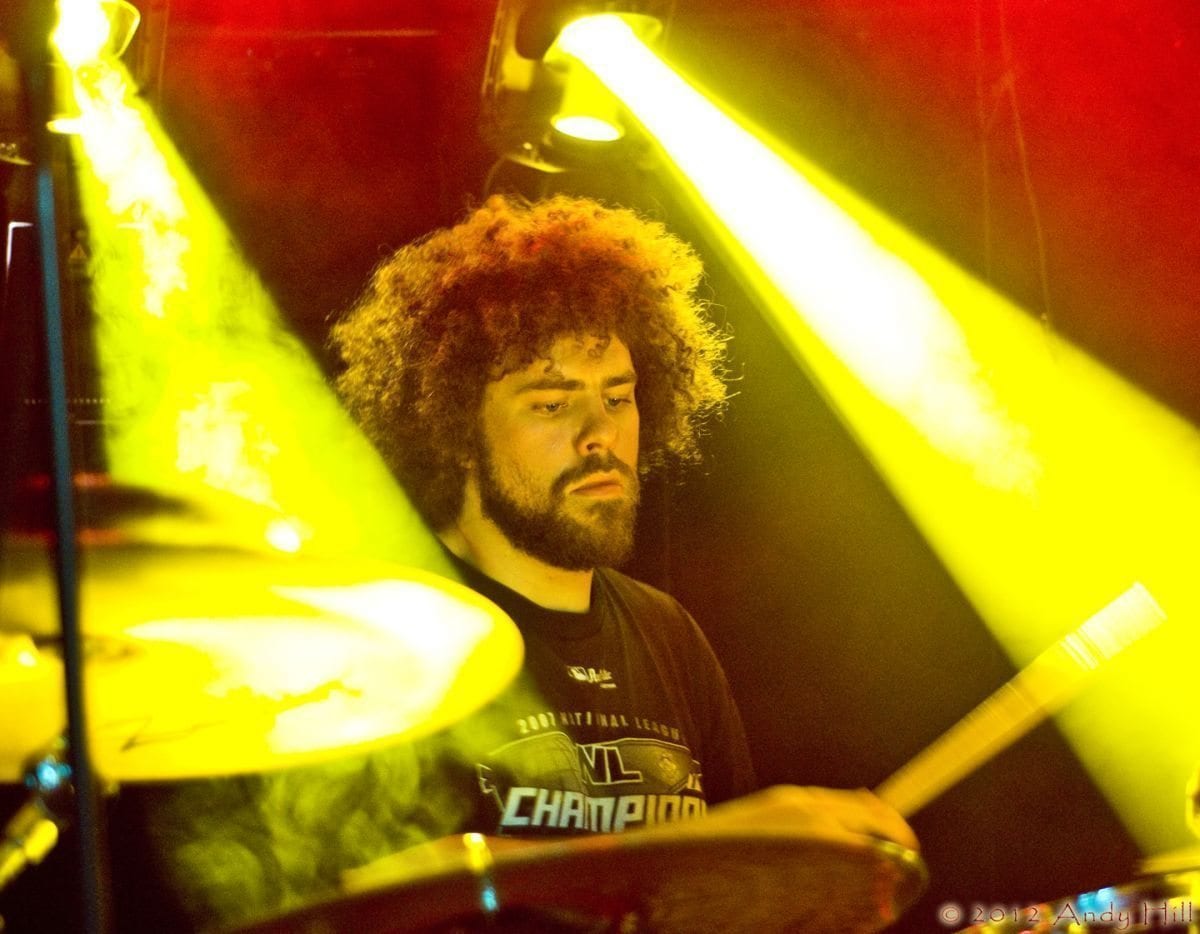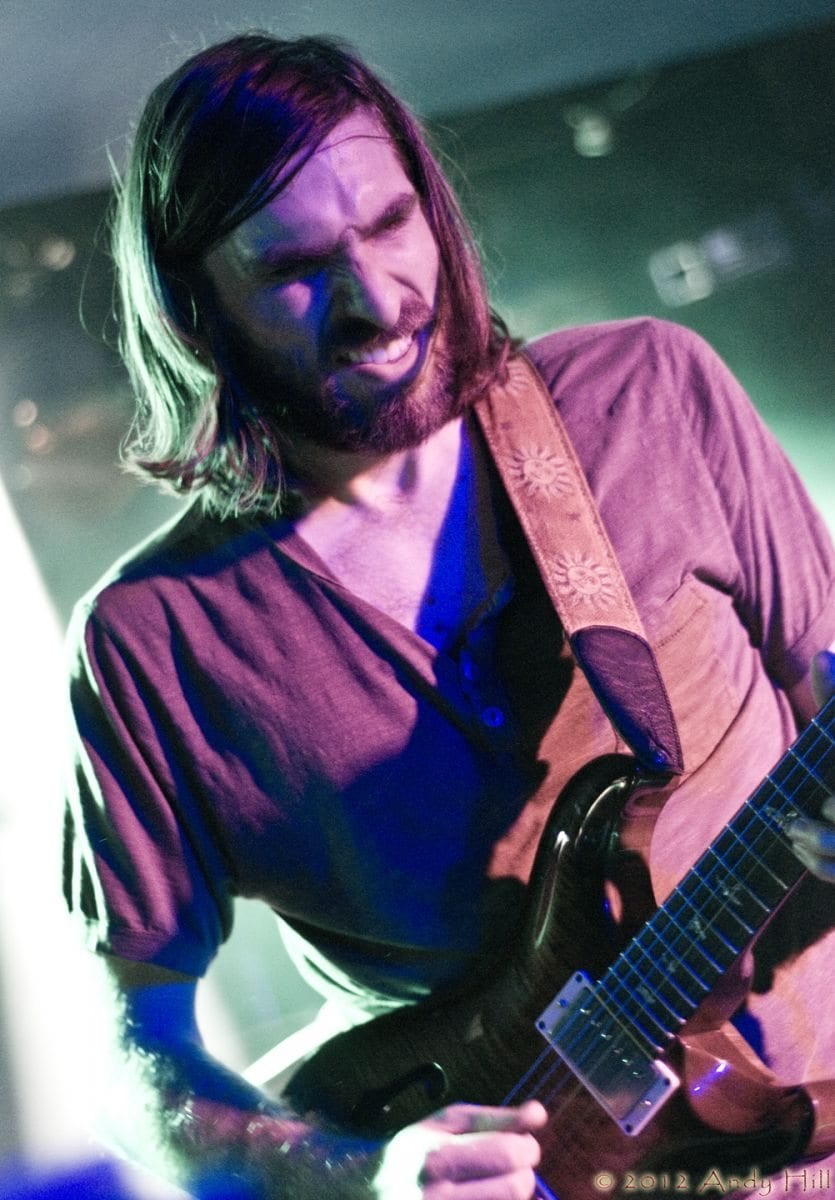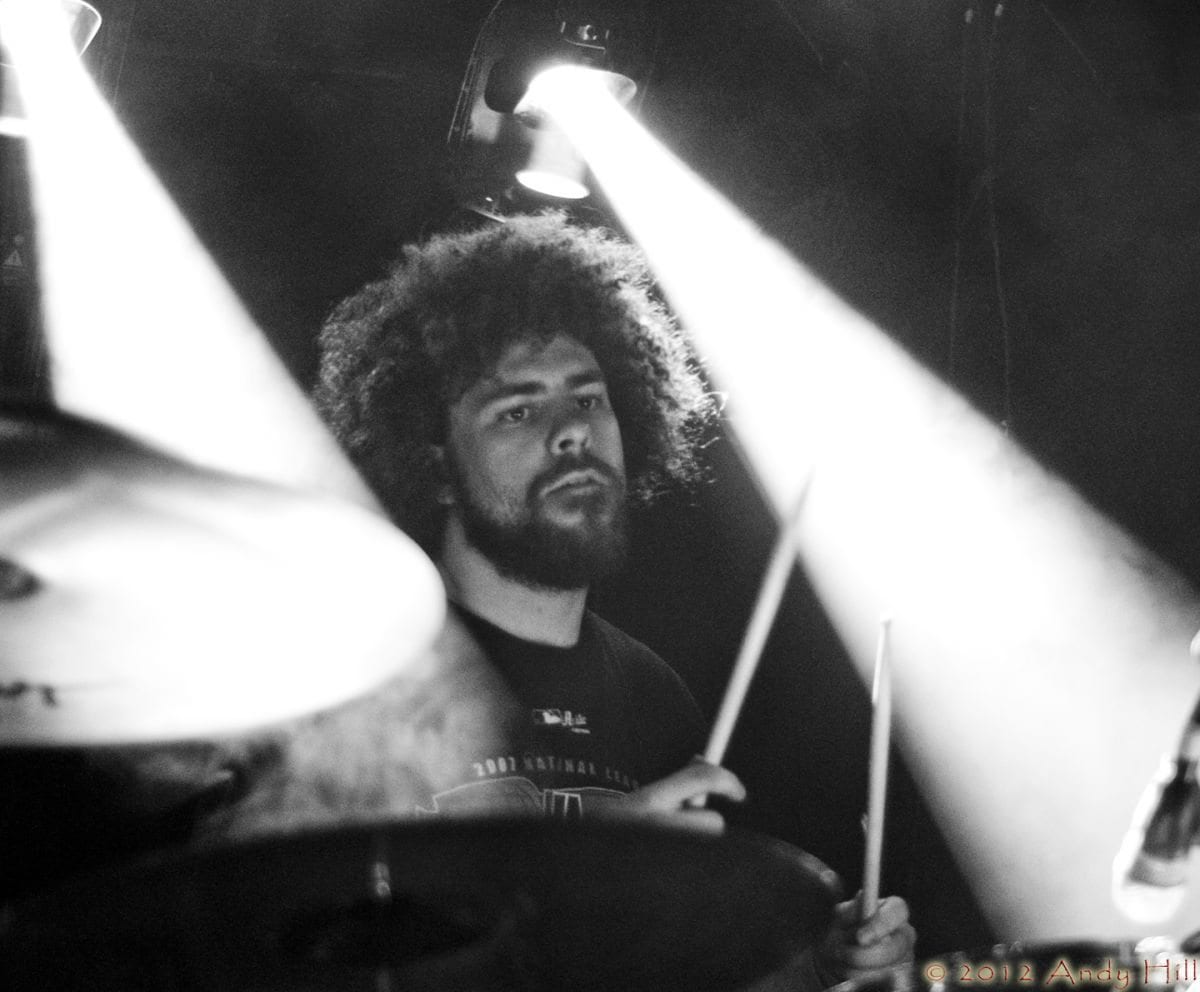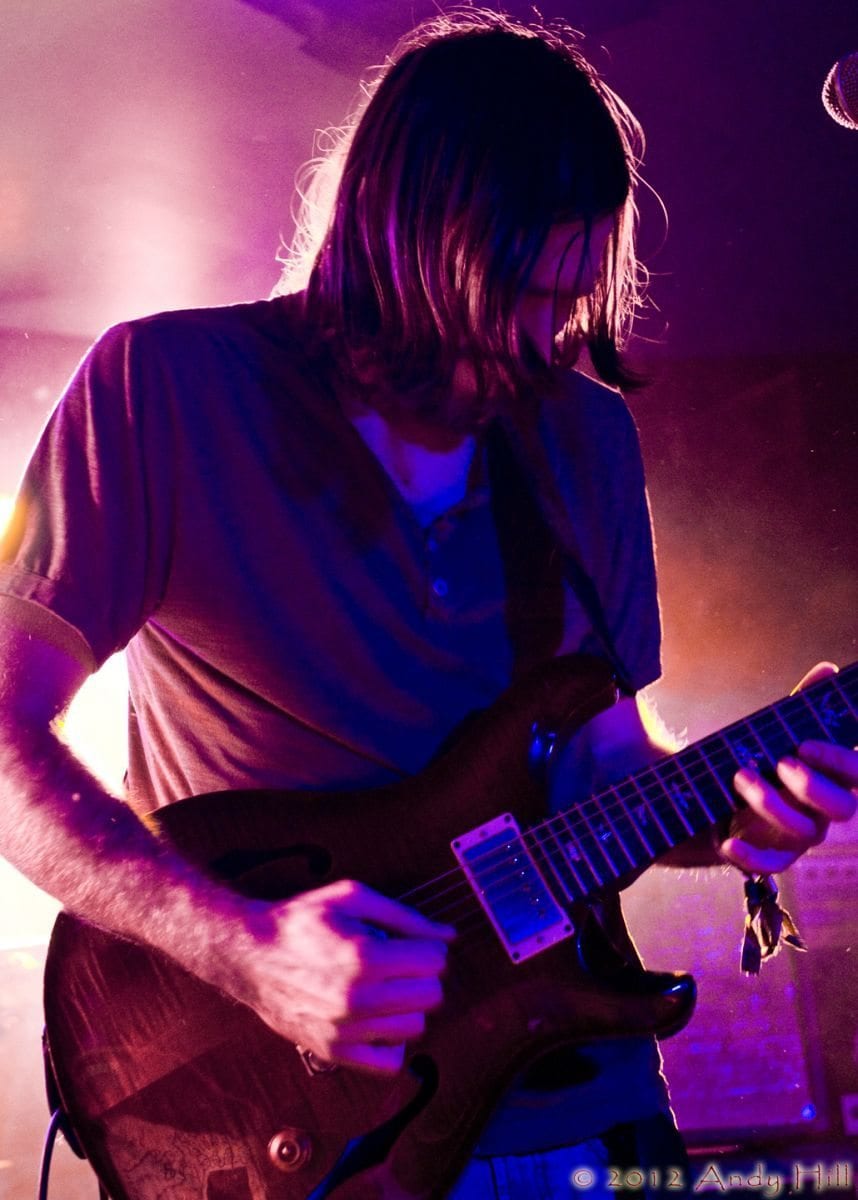I first became aware of Dopapod when I downloaded a show of a band with the funny palindrome name. They had a good sound, a bit heavy for me at the time, but they also did a killer cover of Daft Punk’s “Robot Rock,” a band I have been a fan of since college in the mid-90s. While that cover hooked me, it was the originals and the improv that kept bringing me back. When plans for a book release party for PhanFood came together in the fall of 2010, Nectar’s in Burlington was the venue and Dopapod just happened to be the main act of the night. A couple of emails between band manager Jason Gibbs and myself and the band was happy to help promote the book release, and led to a packed house for both the release and the show. At every festival since and every opportunity throughout, I’ve seen Dopapod continue to grow at an exponential pace. Nearly a studio album a year, plus a heavy touring and festival schedule has made Dopapod a sought after act that is spreading quickly from their Northeastern base. Upon the release of their most recent album, Redivider, we sat down with guitarist Rob Compa and drummer Neal ‘Fro’ Evans of Dopapod to talk about their roots, what lies ahead, and what’s up with the palindrome band name and album titles.
 Pete Mason: How did the band first come together? Who knew each other and when and where was the first gig? Any memories of that first Dopapod moment?
Pete Mason: How did the band first come together? Who knew each other and when and where was the first gig? Any memories of that first Dopapod moment?
Rob Compa: The band started with just Eli (Winderman) and our friend Michelangelo Carubba as a keys and drum duo. My first show was at a little sports bar in Boston called The Draft. I wasn’t in the band yet. I just came out and sat in because Eli and I knew each other from playing reggae gigs around town. The first moment when I really felt like we were on to something was at my first rehearsal in a basement in Allston. We had a jam and just trailed off harmonizing with each other and answering each other’s phrases. It was crazy, like we had the same musical vocabulary right off the bat. It took a while before we were comfortable enough to play off of each other like that on stage though.
Neal Evans: Before I was in the band, I asked Dopapod to play an after party that I was planning for my band Cashed Fools. The party never ended up happening, but Eli invited me to come to the festival that they were playing the next day (Heady Fest), and I asked if I could bring some percussion. Heady Fest was my first show with the band.
PM: You blend a wide degree of sounds among your catalog. What musicians have provided the major influences for each of you?
RC: I’ve been a huge Phish fan since I was a teenager. That’s the biggest one for me. I’m also really influenced by country guitarists, particularly Duke Levine and Jim Campilongo. And I studied a fair amount of jazz over the years; I don’t consider myself a jazz guitarist necessarily, but I learned enough of it to have some bebop vocabulary in my playing. I particularly love Django Reinhardt.
NE: I came from a heavy metal and progressive rock background; the first song I played on drums was Metallica’s “For Whom The Bell Tolls”. And Primus. Then I got into more funk and groovin’ stuff. I’ve always listened to a wide variety, but the heavy drums really got me started.
PM: Are there any new artists that you are listening to that are having an influence on you, or simply ones that you enjoy listening to?
RC: The Fleet Foxes have been a big influence over the last couple years. And Fro recently turned me on to Megadeth. Also, Tim Palmieri’s (Kung Fu/The Breakfast) playing has really had an impact on me.
NE: Jaga Jazzist and Snarky Puppy are my favorite new bands. They are musically amazing and very forward thinking. I’ve never heard anything like those two bands. Also Dub Trio is just super bad ass.
 PM: What gear do you each use?
PM: What gear do you each use?
NE: I have a Yamaha Maple Custom drum kit, DW kick pedals, assorted hardware, cymbals from Sabain, Zildjian, Ufip, and Meinl, and Vater Fusion drumsticks.
RC: I use a Paul Reed Smith Hollowbody II that I love the shit out of. I pretty much only use that live, although I used a Fender Strat and Tele on a lot of the new album. My amplifier is an old Fender Vibrolux that sounds great. For pedals, I use a maxon OD808 and an Analogman King of Tone for my overdriven sounds. I’ve also got a delay, phaser, and a octave pedal on my pedalboard
PM: How have you found the EDM and electronic environment to be, considering that the scene is becoming quite large and almost super-saturated with talent?
RC: I like bands that use computers and click tracks to do the electronic thing. And I think it’s cool that music is changing and evolving with the whole DJ thing, even though that way of making music doesn’t really resonate with me, personally.
NE: There are some that I like and some that I don’t care for. As long as its originality is clear, I’m usually into it. I love hearing sounds and grooves that I have never heard before.
 PM: What do music festivals provide to bands as they are growing, and how do the fans benefit from acts like Dopapod playing festivals on a regular basis?
PM: What do music festivals provide to bands as they are growing, and how do the fans benefit from acts like Dopapod playing festivals on a regular basis?
RC: Festivals are awesome because it gives bands a chance to to be heard by tons of new people who might not have ordinarily gone out of their way to take the chance on the band. And, it gives people the chance to discover new bands.
NE: Festivals are great for helping a band gain a following in the greater area of the festival. Most festivals have a large local attendance, so when we come back to the area, there will be a lot of people who first saw us at the fest. There is definitely a large growth of electronic music at festivals, and a lot of fans express their gratitude for keeping the live band element strong at festivals. And we like to do fun special things at festivals, because they feel like special gigs. Our festival sets usually have some fun surprises that may not happen at a club or venue.
PM: Branching out from the Northeast, you have recently dipped into the Southeast and Midwest. How have you found the experience entering new markets, with only word of mouth to precede you?
RC: It feels great to play a market for the first time and already have people there excited for the show. It’s encouraging. At the same time, going to different parts of the country and playing for smaller crowds is very humbling. It’s important for us to remember that we still have a lot of work to do.
NE: It’s always fun to go to a place you have never been before for the sake of playing music. Some new markets do well, some not so well, but we will just keep at it. We have seen steady growth just about everywhere, which is a great feeling.
PM: How has the reception been from fans in these parts of the country?
NE: So far so good! Gaining many fans and street teamers all the time, and getting a lot of support from people in the new areas.
RC: It’s been awesome, all around. Even if a show isn’t necessarily packed, people always seem to have a great time. Crowd size matters not.

PM: Was there a moment for each of you where you were playing a show or on the road, and the thought crossed your mind, “Wow, I can totally see myself doing this for a living!”
NE: I think that happened for me when the first time I played a drum set.
RC: I think we’ve all felt that way the whole time. None of us really have any doubt that this is what we want to do.
PM: One burning question that I’ve had is the use of palindromes, both the band’s name and each album title: I saw live Dopapod evil was I, Drawn Onward, Radar, and the latest, Redivider. Did the band name come first, then palindrome album titles, or was that sort of the plan all along? Can that well ever run dry?
NE & RC: ?yrd nur reve llew taht naC ?gnola lla nalp eht fo tros taht saw ro ,seltit mubla emordnilap neht ,tsrif emoc enam dnab eht diD .redivideR ,tsetal eht ,radaR , drawnO nwarD ,I saw livE dopapoD eviL waS I :eltit mubla hcae dna eman s’dnab eht htob , semordnilap fo esu eht si dah ev’I taht niotseuq gninrub enO
PM: Regarding Redivider, the album is a fantastic mark of growth in the band and your best album to date. “Braindead” has a hint of Oysterhead, while “Bubble Brain” gives off a hip-hop feel, “Trapper Keeper” has one of your catchiest lyrics – they make for a powerful start to the album. What was the process behind each of these songs?
NE: Each song came together differently. “Bubble Brain” and “Trapper Keeper” were ideas that Eli had, and “Braindead” was written completely off of a guitar riff that Rob wrote.
RC: They were all different. “Braindead” seriously took like a year to write. It started with just the intro riff, which I brought to the band to jam over in rehearsal. And it became a finished piece very slowly. Eli wrote Bubble Brain on his computer, and we all learned our parts on our own, then rehearsed it and made some arranging changes. We started working on “Trapper” right before the Redivider sessions, and basically finished it in the studio, which was a cool new method for us.
PM: One song of note, “Vol. 3, #86” is not only a stand out, Nintendo-esque track, but also one of the more unique titles. Where did this one come from and how were the pieces of the song composed and melded into one final tune?
RC: Eli wrote the music and I wrote the lyrics after the music was written. I’ll give 5 bucks to the first person who can figure out where the title comes from.
PM: You’ve played all over New England and Upstate New York. What stands out for you when you go through New York and hit off Buffalo, Syracuse, Albany, Ithaca and all points in between?
RC: Oneonta, NY is a standout. Some of our first shows were there, so we’ve got a lot of fans from there who’ve been with us from the beginning. That’s a really special place for us. Also I’m from Rochester, so I always enjoy playing there.
PM: Did growing up in Rochester influence your music playing in any way, either through school or the local music scene?
RC: Absolutely. While I was in high school, I did a bunch of musical extra-curricular things that challenged me as a musician, like pit bands and even an Irish band. I also played in a local cover band called the Earthtones, which taught me a lot about gigging and having a good attitude about playing with other people. After high school, I got really into an amazing local band called the Niche. Eventually, they sort of took me under their wing and let me sit in with them at shows. That was a huge influence for me and I still love their music to this day. Also, an early jazz based influence was a great local group called Doja. Their guitarist, Paul McCardle, is an amazing player and had a big impact on my playing early on.
PM: Got any favorite places to stop for food while in Upstate New York?
NE: Dinosaur BBQ, Alto Cinco in Syracuse and anything around Ithaca is great for hiking and chilling.
RC: Garbage Plates.
Dopapod plays Albany at Red Square on February 28th with special guest Big Something, March 1st at The Westcott Theater in Syracuse with special guests The Manhattan Project and The Greys, and March 2nd at Water Street Music Hall in Rochester with special guest Haewa. There will be Garbage Plates late night.


Comments are closed.